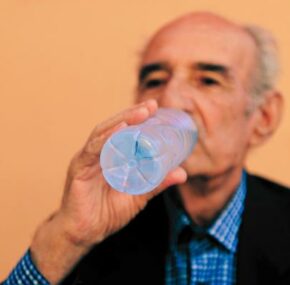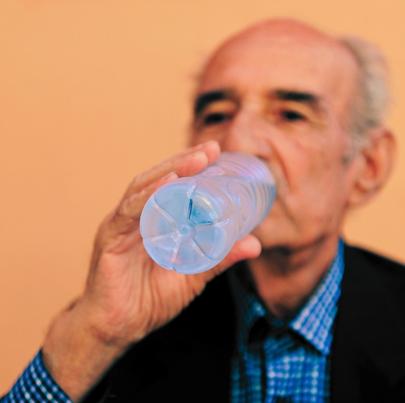Nursing home patients who need assistance with eating and drinking have an increased risk of dehydration and complications that can lead to death.

Dehydration can be Fatal
Dehydrated patients in nursing homes are five times more likely to die than other patients. When elderly adults become dehydrated, fluid loss can create a variety of health complications including high sodium levels that can be fatal. If fluids are not replaced, the body will eventually fail to perform vital bodily activities that are necessary for health and vitality.
In a recently published article in the Journal of the Royal Society of Medicine, 21,000 hospital patients aged 65 and older were studied. The study showed that 1,413 patients died during their hospital stay. In 432 patients, high sodium levels, often caused by dehydration, were found in the blood. Medical research shows that aging, certain medications, and kidney disease can decrease thirst drive, so some elderly patients may not feel thirsty. Nursing home patients who require assistance for basic tasks like standing and walking often avoid drinking because they fear they will not be able to reach the bathroom in time or may wet the bed. Patients with speech problems or language barriers often can’t tell someone they are thirsty.
Unfortunately, dehydration in nursing homes is a common form of elder abuse and neglect. Patients with communication problems, mobility problems, and cognitive disorders like dementia and Alzheimer’s are especially vulnerable to dehydration. In some cases, caregivers intentionally avoid giving patients too many liquids to keep them from wetting their beds. In other cases, inadequate supervision, high staff turnover rates, and lack of training contribute to patient abuse and neglect. Common complications of dehydration in elderly patients include:
- Dizziness and vertigo
- Irritability and confusion
- Headaches
- Sunken eyes
- Hollow cheeks
- Dry, papery skin
Late stages of dehydration often include life-threatening problems such as: low blood pressure; rapid breathing and fast heart rate; lack of consciousness; seizures; swelling of the brain; kidney failure; coma; and death. Dehydration in elderly patients is serious and can happen very quickly, especially in patients who have a fever or diarrhea. To prevent illness and injury, nursing home patients must be closely monitored and encouraged to drink water and other fluids, even if they don’t ask for them or seem thirsty.







